Members of US Congress and Senate involved in insider trading
Insider trading is the illegal practice of trading on the stock exchange while having access to confidential information. One place where such, unethical if not immoral, trading is being perpetrated on a huge scale with impunity is the US Congress.
Whenever there are congressional elections we are inundated and bombarded with sound-bites and video clips of how lawmakers plan to regulate laws, to make things better and, last but not least, to fight corruption in all of its forms.
But with recent revelations of insider trading by the lawmakers themselves, one wonders who is going to regulate them? How big an issue is this practice in Congress and what can be done about it?
Insider trading has long been the bane of Wall Street, its regulators and law enforcement. But the illegal practice isn't just perpetrated by wealthy financiers or celebrities.
Politicians have unique insight into what most outsiders don't. In fact, a recent report by the New York Times showed 97 lawmakers, or their family members, bought or sold financial assets in the past three years that could be affected by their legislative work.
Most law makers, when asked about the potential conflict of interests, said they “believe” they follow the law.
Well, it's funny that it's phrased that way because the law is built around them and the system as it currently exists.
So what the New York Times pointed out is something which verges into (sic) outright criminality, insider trading and all that.
But that's not the big story about corruption in democracy in the US and the erosion of faith in government; it's their constant looking for money.
The system is completely based in cash and the law allows them to actually be doing what they're doing, which is just, you know, looking for money all the time. Everything is based on money.
Daniel Patrick Welch, Geopolitical Analyst, Boston
One must point out that the practice of insider trading in Congress is nothing new and has, in fact, been going on for decades. There have even been laws passed to stop it but they all seem to have failed miserably.
Why have these laws not been able to stop this practice?
They've written the laws, the Congress and the Senate have written the laws in a way that makes what any person would consider to be unethical, in fact, as far as investments, and the relationship of investments to the committees that they sit on, the information that they receive.
But they made the laws such that it's almost impossible for them to be found guilty, or even charged, for the kind of investments they make that are in fact very much tied to the inside information, the insider information, that they get because of their positions in the house or the Senate.
Richard Becker, ANSWER Coalition, San Francisco
Now, before we go on, it's interesting to see just how rich the lawmakers truly are. A study back in 2020 found more than half of those in Congress are millionaires.
The median net worth of members of Congress who filed financial disclosures is just over $1 million. Interestingly, some longtime members of Congress also saw their wealth rise as they could retain their seats for years.
Today, in the Senate of the United States the net worth of the senators ranges from $10.7 million from a woman named Lisa Rochester who's from Delaware to $260 million, the net holdings of Senator Rick Scott, and there are 10 senators, the top 10 senators all I have a net worth of over $100 million each.
So you can see that, you know, that this is just the huge wealth, how did these people get the wealth? There is that question.
That's a big question, because a senator makes $174,000 a year. That's a very good salary, you know, for the average person to think about, but how do you go from a salary of $174,000 to a fortune of 260 million, what happened there?
Richard Becker, ANSWER Coalition, San Francisco
Trust in government is a pillar in any democracy. A report by the Pew Research Center finds that many Americans see declining levels of trust and confidence in the federal government and elected officials.
How might such revelations further damage trust in government?
Trust is supposed to be a pillar of democracy and it is seriously undermined by this system. It has been for some time.
But I think the recent Supreme Court ruling that eliminated all restrictions on corporate donations to campaigns and the just sheer overwhelming volume of money thrown into these campaigns just puts trust in government at, I think, an all time low.
Daniel Patrick Welch, Geopolitical Analyst, Boston
The US Congress, consistently scores poorly in surveys about trust in institutions. Indeed, Congress is the least popular branch of the US government.
The most recent polling data from October of this year puts approval rating for Congress at just 21%
I do think, in terms of trust, that there's a great lack of trust in the government in general, that many people are skeptical of the government, opposed to the government, some for good reasons, and some for reasons that aren't good.
I mean, there are those who are skeptical of the government, because they know that there's a lot of malfeasance going on, there's this kind of thing that we're talking about, the insider trading going on.
But then the extreme right wing has promoted the idea that the corporation's should be free to do whatever they want and they blame the government for everything when, in fact, the government needs to provide for the needs of the people not to be diminished in the way that the right wing wants to do (sic).
Richard Becker, ANSWER Coalition, San Francisco
Each of the past three presidents promised to restore that trust in his own way; Barak Obama signed a law trying to stop congressional insider trading, Donald Trump vowed to drain the swamp of corruption, and most recently President Biden has called on Congress to prove that democracy still works.
To what extent have they been successful?
They never intended to drain; how can trump drain the swamp, he is the swamp, or the dragon, or the whatever, the moat, the mud; however you want to define it.
And, you know, for Biden to admit that democracy still works after that,... just a ghastly display of the so called presidential primary where his own party muffled and strangle the only populist candidate in the race, and there is no there they have not only not been successful at all, but they never intended to be successful.
They just want to sound good and look good for the sound bites for the next campaign.
Daniel Patrick Welch, Geopolitical Analyst, Boston
This institutional distrust can lead to people seeking alternatives that may themselves turn out to be bigger problems.
This was indeed the case when people trusted Trump to "drain the swamp" only to see that even more swamps were created during his presidency.
Trump, Trump is just really joking. I mean, Trump is the swamp. There's no one who's been a more corrupt public figure, you know, billionaire developer and so forth.
I mean, he's infamous, as many books have testified; he's infamous for not paying people, for not paying workers, for not paying back his debts, for declaring bankruptcy, and so forth.
So I mean, that is part of the deception of US politics; that someone like Trump, with the history that he has, could actually pretend to be someone who wanted to clean up corruption. That's just really a joke.
Richard Becker, ANSWER Coalition, San Francisco
But the stories by the New York Times or other media outlets are supposed to enlighten people about the level of corruption and, ultimately, put an end to such practices.
That's what we expect to get from such stories. But why haven’t similar stories in the past achieved this end?
Well, of course, this information does not get out to the general public very much.
There was a very big article in The New York Times here that went into some detail about the relationship between inside information in the hands of senators and Congress persons and the investments and trading that they were doing.
But the New York Times is not what the masses of people read. And so, you know, unless this shows up in the mainstream media, the more popular media, then people don't know about it.
Richard Becker, ANSWER Coalition, San Francisco
This, of course, is not the first time that such revelations have come out.
How have the politicians been able to sweep such damaging reports under the rug in the past?
That's an interesting question. How do they sweep this all under the rug? And you'd have to realize that part of this whole network is the media itself. So the stories that get generated are part of this same money pit, there's no independence.
Americans can go on and on about Russian state media, or Indian state media, this and that; the fact is that the media is controlled by the same oligarchs, the same billionaires, that run the electoral Ponzi scheme so they're, it's easy for them to hide it, they just don't consider it a real story, you know, important narrative, and so they just routinely dismiss it.
Daniel Patrick Welch, Geopolitical Analyst, Boston
The potential for conflicts and corporate interests in Congress has long drawn criticism, especially when “blame cases” emerge.
One such case involves the current president of the United States.
If you go around from congressional district to congressional district, you will find, you will undoubtedly find, that the main corporate interests in those areas have the (sic) great influence great, great influence on the representatives who are in the House of Representatives and in state legislatures as well.
I mean, for instance, take the President of the United States today, Joe Biden, Joe Biden was a Senator for 36 years from the state of Delaware. Delaware used to be run by the DuPont corporation.
He was the senator from DuPont, but in recent decades, it shifted and Delaware became the center of the credit card industry and of the chartering corporations.
So he became the (bankers’) Senator and he defended the interests of the banks and the credit card corporations against the interests of the people.
Richard Becker, ANSWER Coalition, San Francisco
It is a well established fact that money influences election outcomes. You want to win elections, you need money. It's as simple as that.
The short two year terms for the house, plus the long, and costly, campaigning seasons in the US require that a lawmaker have a big war chest.
Does the structure of power play a role in the quest for ever more money by lawmakers?
Oh, yes, most definitely. I mean, the elected representatives never stop running now. And this was not true so much in the past, you know, but in recent decades it has become very true.
And this goes for members of the House of Representatives because they are running every two campaigns for the midterm elections.
Here the midterm elections for the House of Representatives and the US Senate. And also for very many state representative bodies as well.
Richard Becker, ANSWER Coalition, San Francisco
The candidates who spend the most money almost always win the election. For the past 20 years, data from open secrets has shown that the House or Senate candidate with the most money wins between 71% and 98% of the time, respectively.
I mean, part of it is a corrupt system, and I wouldn't say anyone shouldn't get involved in it at all except to end it. But it should be fair.
As a human being who are you going to ask for money if you need to raise $100 million by next week? Are you gonna go out and get pennies and dimes? Are you gonna (sic) ask really rich people for their money, and what does that entail?
As everybody knows (if) you ask rich people (for) money, they want some for it; and that's how the system works. And the whole thing is structured for it to work that way.
Congress people will admit that they know they have to spend half their time outside of Congress, down the street, at whatever office is allowed, because it can't be done in Congress itself.
But they're on the phone asking for donations and this is required of them by their party and it's very strictly tracked. You have got to get the money in order to still be part of the process.
Daniel Patrick Welch, Geopolitical Analyst, Boston
Perhaps one of the reasons that wealthy Congress members are not questioned for the fortunes they have amassed is that there is almost no media scrutiny of their finances.
No one asks where they got the money from. This is while the US media usually covers the same stories regarding Russian, so called, oligarchs with much higher hype, yet similar stories in the USA never get mainstream coverage.
Well, you have to ask the question, it's kind of a joke, I think, a bad joke, but you know, how do you become an oligarch? Well, first being very wealthy, but number two, be Russian.
And so, the terminology that is used is very important, because the terminology, the vocabulary, shapes the consciousness of the public.
So we have the richest people in the world today are said to be Jeff Bezos, who owns Amazon and many other things. And Elon Musk, who now owns Twitter, but the media here will never call them oligarchs. I mean, why aren't they oligarchs? Well, because, while they have a lot of money, they're not Russian. So this is a, you know, it's a trick. It's a game that's played with the media and that game applies to almost everything.
In Israel and Palestine, which is something I've paid attention to over the years, you know, the, the Israelis are always “retaliating against violence from the Palestinians”, if you listen to the media here, and the media in Israel.
And so the use of vocabulary, the words that are used, are important, and they're very consciously thought about and decisions are made at the highest levels in the mass media, about what words can be used to describe what people.
Richard Becker, ANSWER Coalition, San Francisco
The reason why Congress members and billionaires in America are not called oligarchs is because they're perceived to have made their fortunes through legal means and methods and not through political connections. But that perception could be very misleading.
We have billionaires, Russians have oligarchs, the Chinese have oligarchs; they make great stories because the Western media can crow about, oh, they're fake communists. They think that they have socialism but they have billionaires, too.
And of course, (in) Russia, they're all personal friends of President Putin and (are) running, you know, everything from A to Z; time doesn't move forward without the oligarchs in Russia etc.
And there's nothing like that, no coverage, when it comes to the US, even though, of course, this system is much (more) controlled by billionaires than it is, and that that makes perfect sense, doesn't it? Because they also control the media so they don't have any idea.
Just about everything they say, like true sociopaths, all their accusations reflect back on them much more reliably than they do for the people they're accusing. It's all true of them. But they keep it, you know, out of the press and a lot of these people, you don't even know who they are.
Daniel Patrick Welch, Geopolitical Analyst, Boston
Lawmakers have proposed bills to restrict their own stock trading. But these proposals did not work as intended.
What are some of the potential solutions to stop this profiteering by members of Congress?
I think that we need a new system, a whole new system that is not based on exclusively meeting, or almost exclusively meeting, the needs of the rich, the corporations, the billionaires, the millionaires.
That's what the system is designed to do, it is not formed by the people, it's all for, and by, the American oligarchs.
Richard Becker, ANSWER Coalition, San Francisco
Again, the idea of solutions to it as an individual approach is, I think, is the wrong logic. You know, the entire system is corrupt to the core.
You could have a constitutional amendment to limit donations, have these things be publicly funded, have it be legislatively described how long the campaign can be, and when people can campaign and how much they can spend, all that stuff.
That's been gotten in all these other countries, but it's just not part of the American culture. It is an oligarchy, It's not a democracy, and it's not set up to be.
Honest Americans, Jimmy Carter, I would say is at least one, who said his organization wouldn't even accept the invitation to monitor American elections because it’s so horrible, there's no centralized organization with any sort of teeth. There's nothing that raises it to the level of a true representative democracy, and that's just the way it is.
The real solutions, I think, are for the rest of the world to stop taking lectures and advice from one of the worst democracies, that pretends to be functioning, on the face of the planet, and to go their own way instead of letting the US set the agenda.
The US will figure it out on its own when they have to, when the thing collapses.
Daniel Patrick Welch, Geopolitical Analyst, Boston
The size and scope of what Congress is involved in is just dramatic, whether it's healthcare, whether it's defense, whether it's financial markets.
Lawmakers have market moving information, and they have to act on that information. And remember, this information can be easily relayed to their family members.
Laws and bills do prohibit members of Congress from trading stocks while in office, but they are not enough.
In order to regain public trust Congress needs to first act on more urgent issues which have made it such an unpopular branch of governance such as, big money, high election rates, lobbying, long election seasons, and a two party system.
Should lawmakers ever become serious about solving those problems, maybe they will become serious about solving insider trading, as well.
VIDEO | Death behind bars: Gaza’s prisoners. silence surrounding them
60,000 weapons bound for Tehran seized as Mossad-trained terror cell busted
VIDEO | 13th day of war
Israeli strikes kill two in Lebanon as UNIFIL warns against ceasefire violations
Trump threatens to slap tariffs on countries opposed to US Greenland takeover
VIDEO | Press TV's news headlines
VIDEO | Iran: A make-or-break moment?
South Korean court sentences former president Yoon to five years in prison


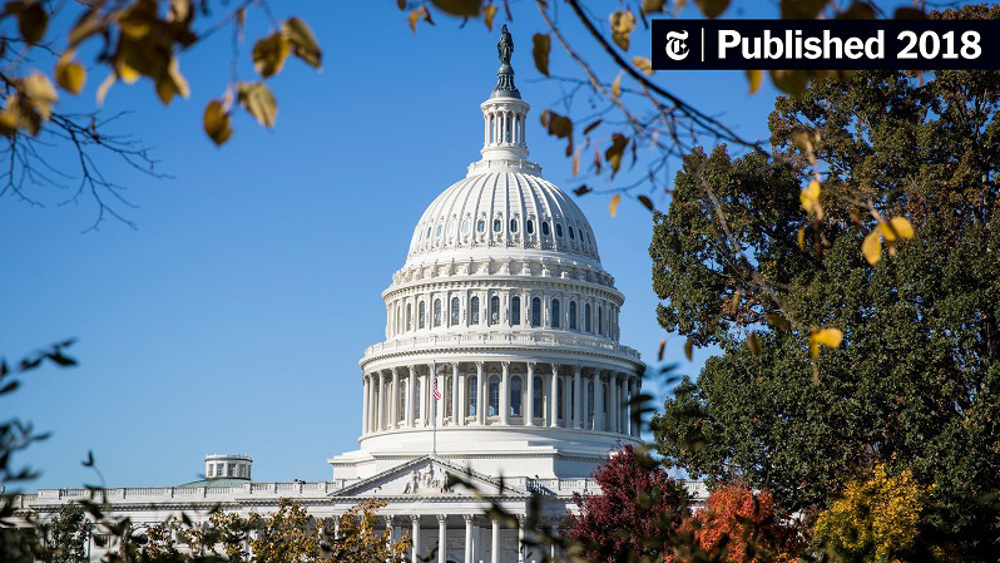
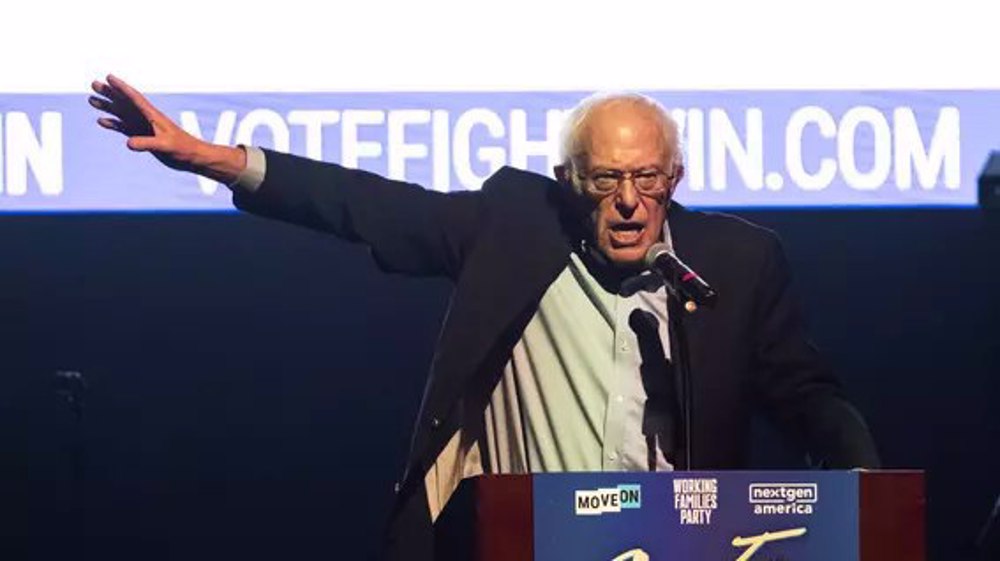
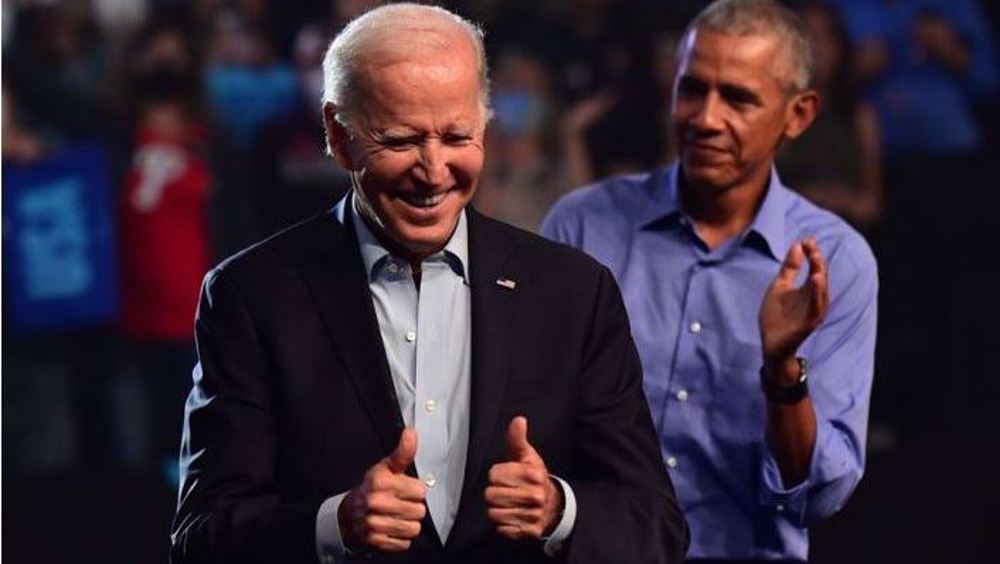
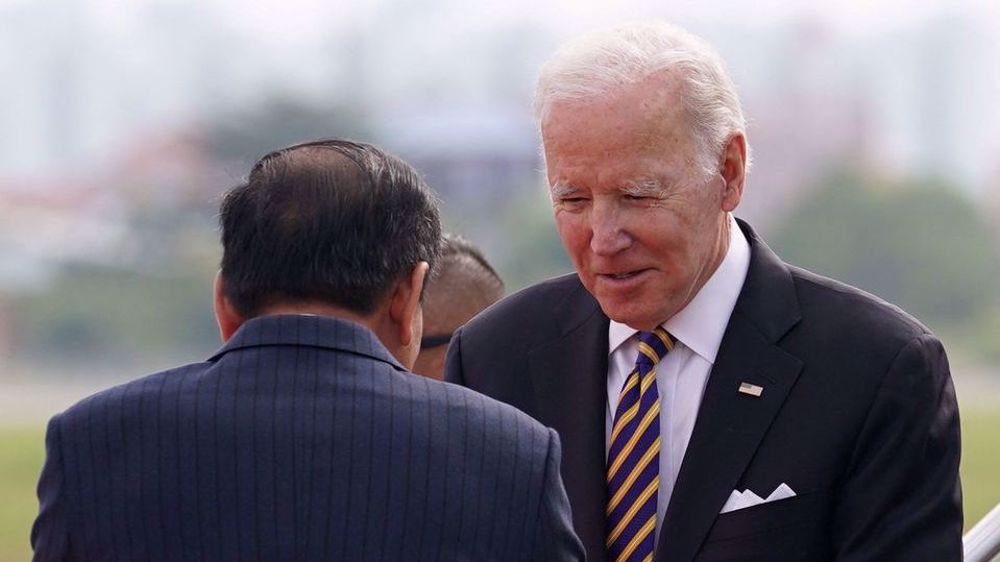
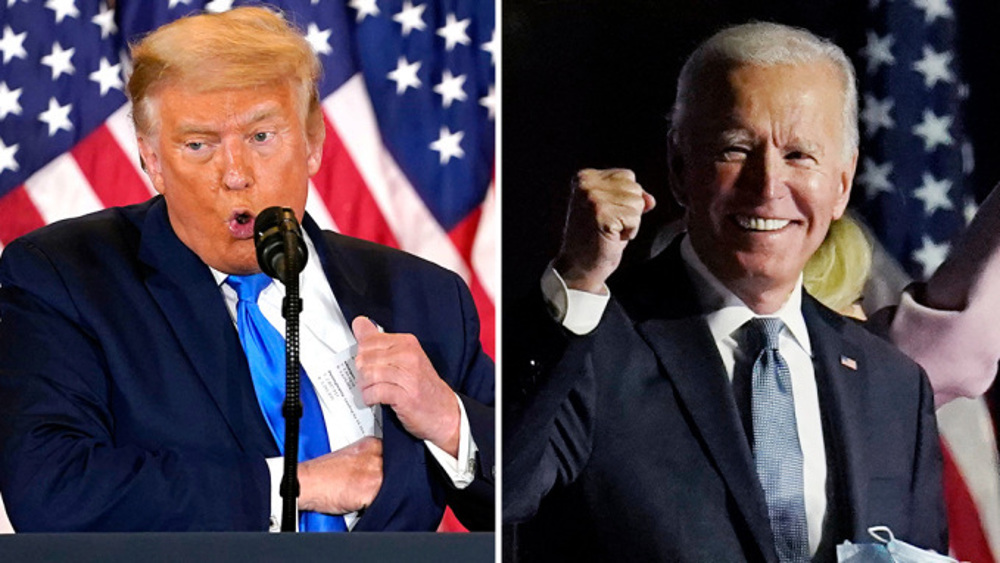

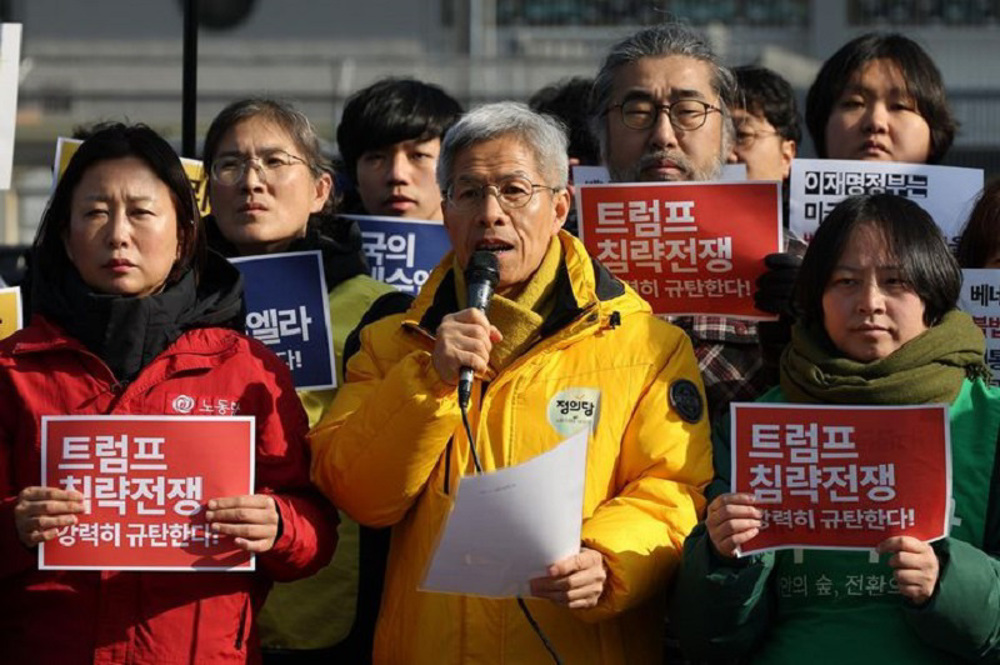
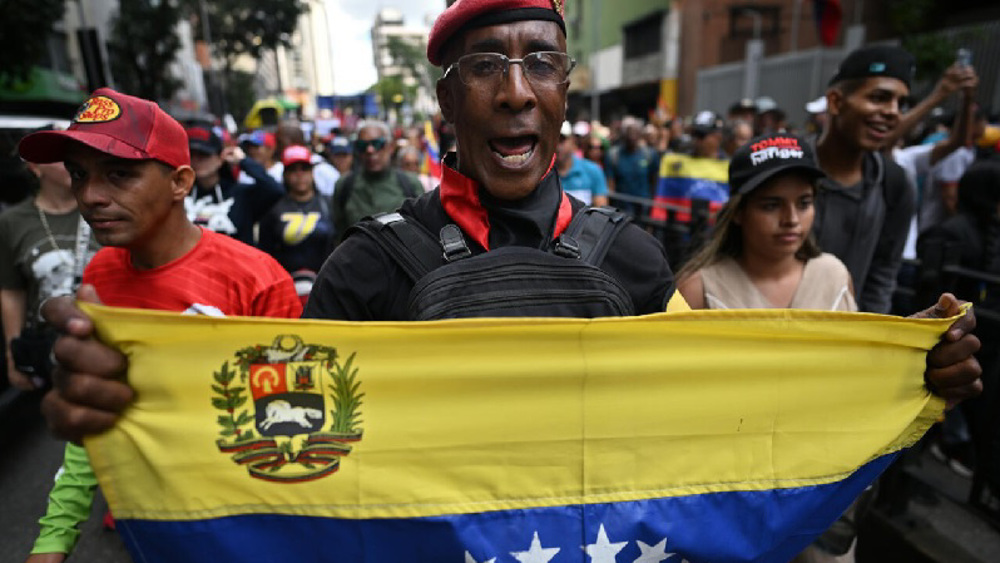




 This makes it easy to access the Press TV website
This makes it easy to access the Press TV website